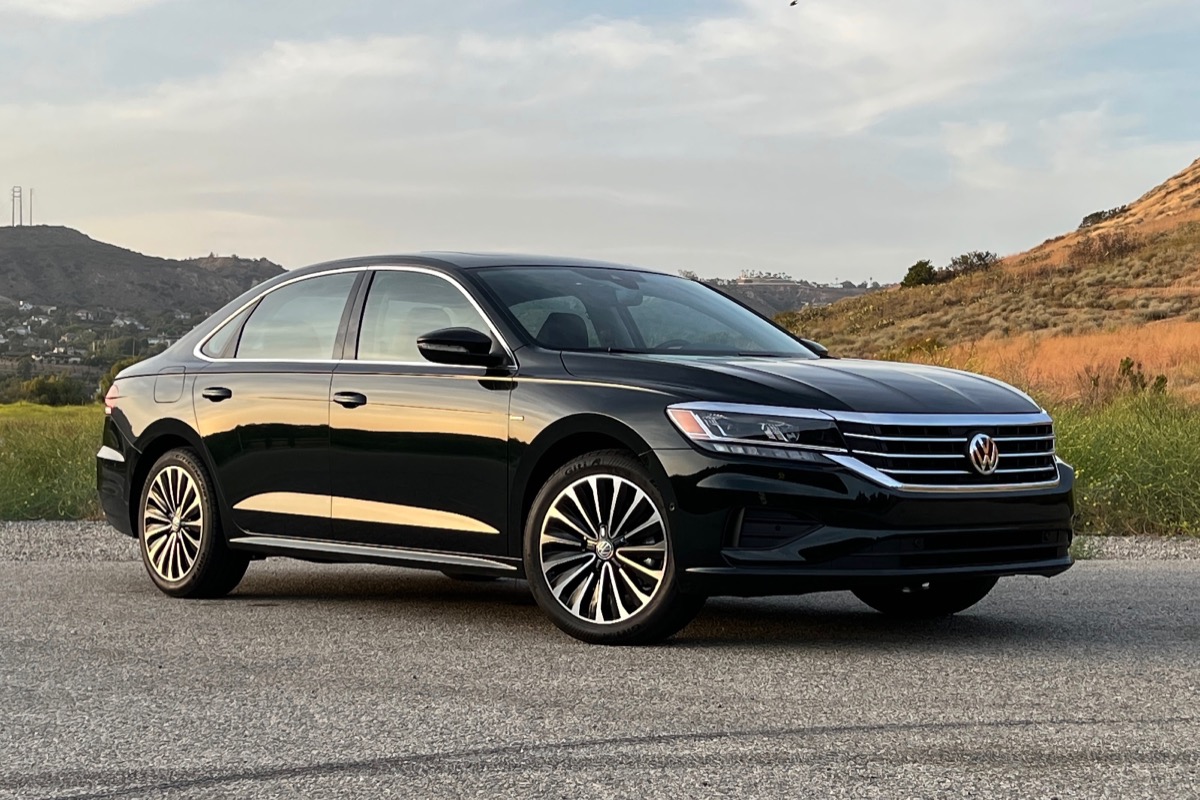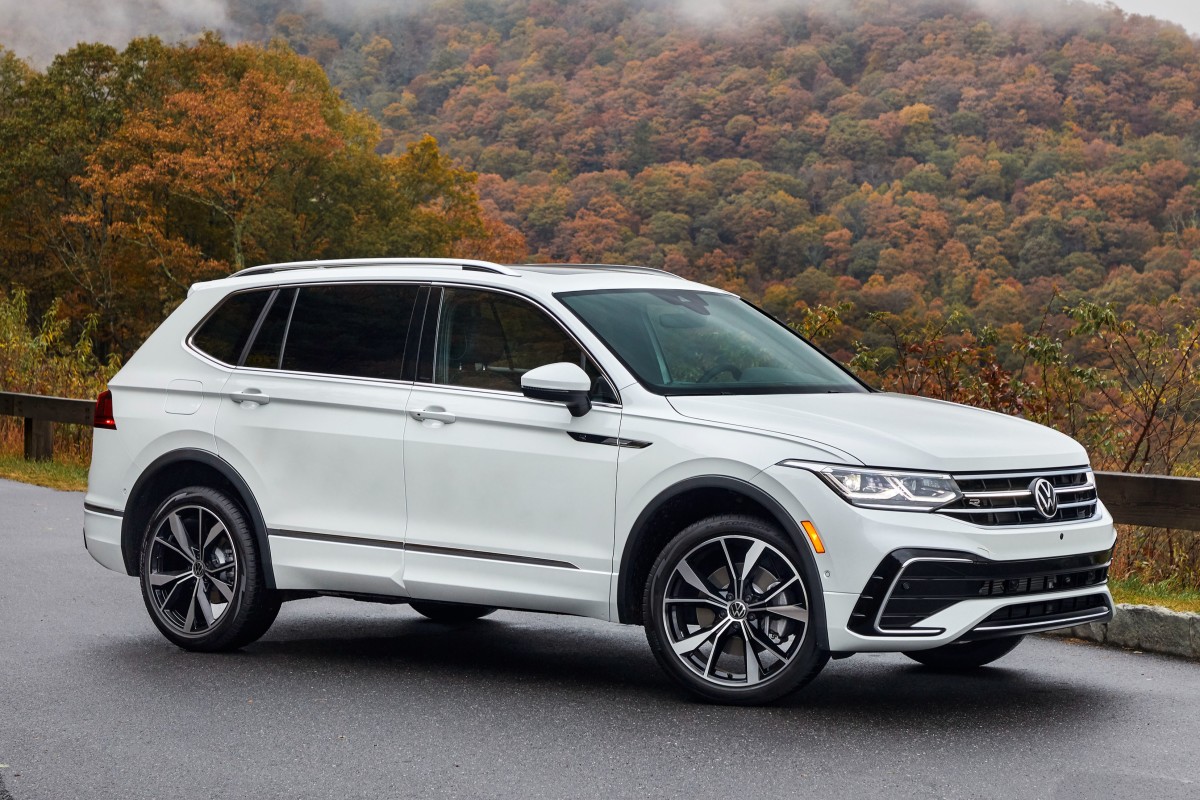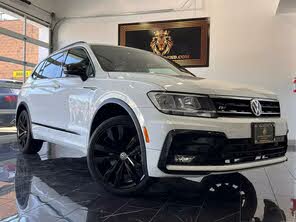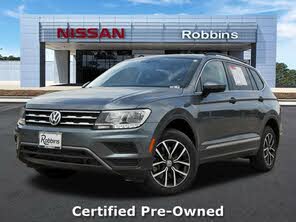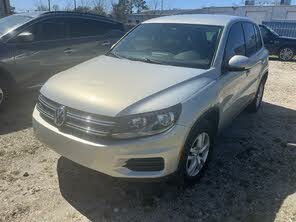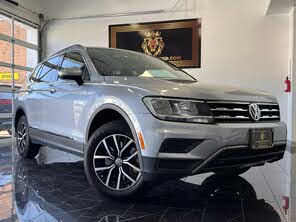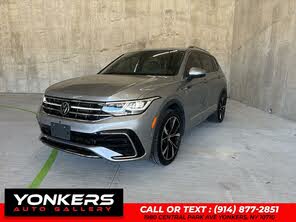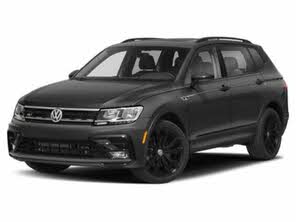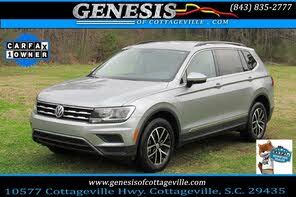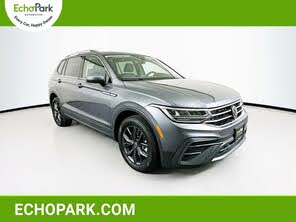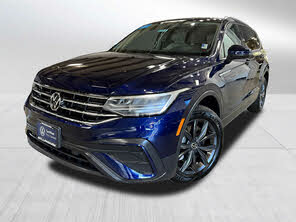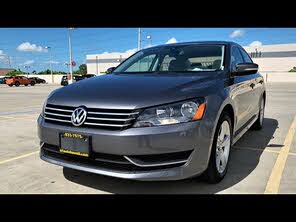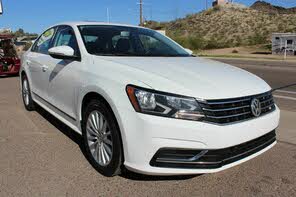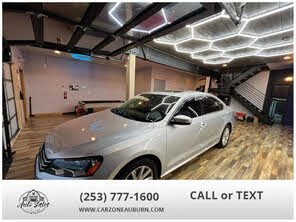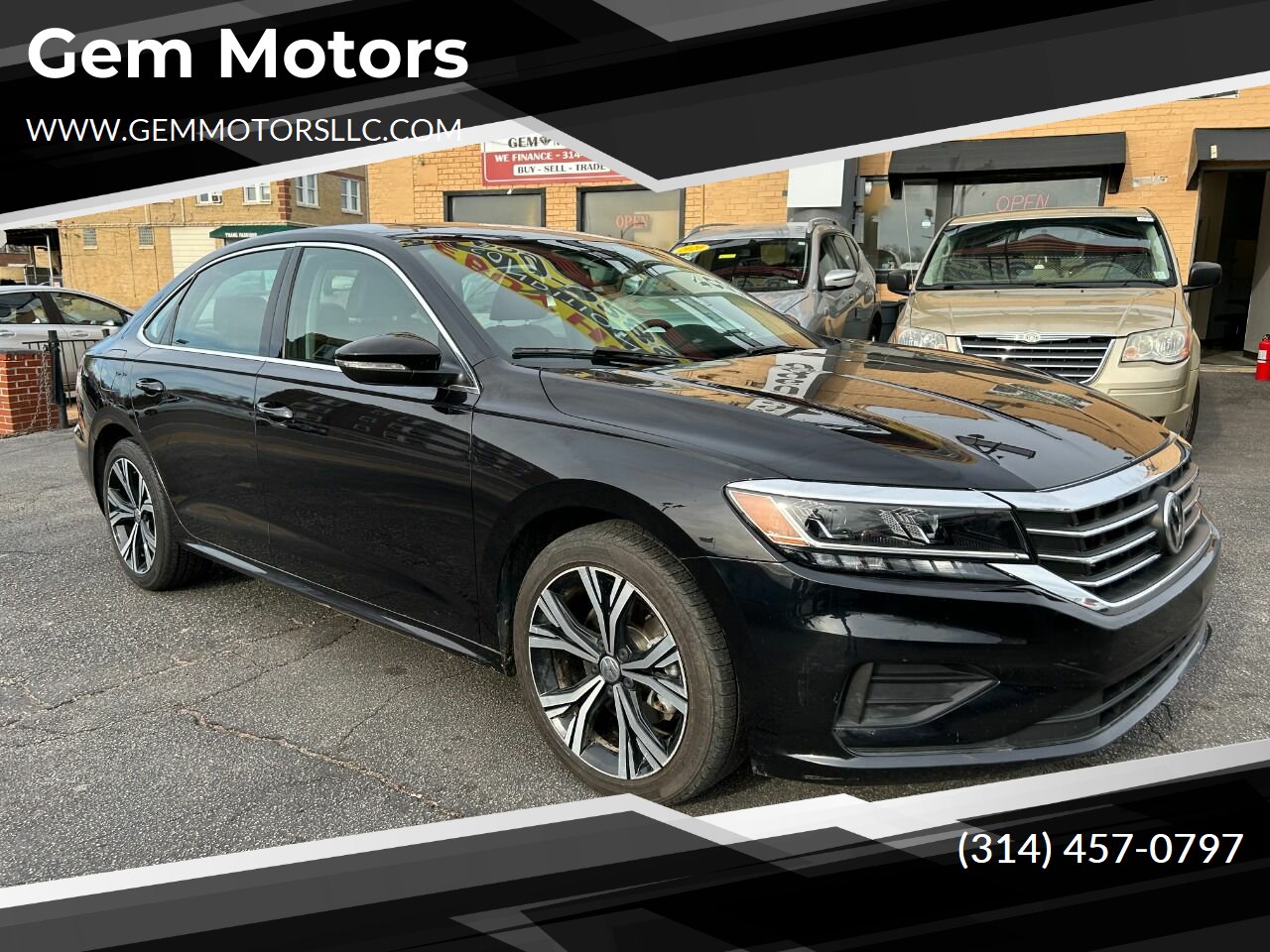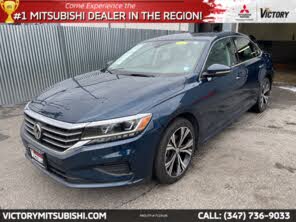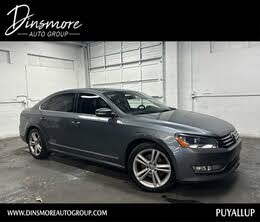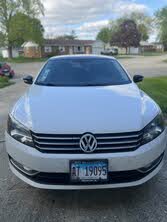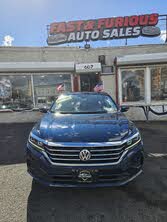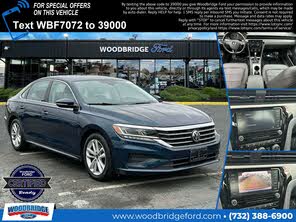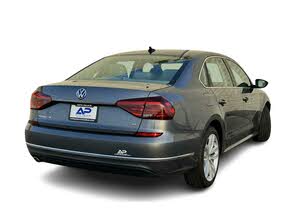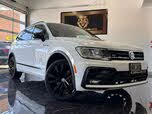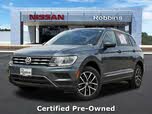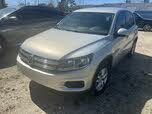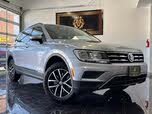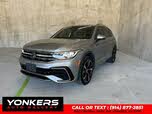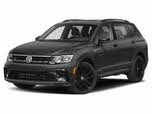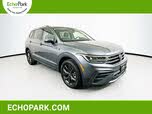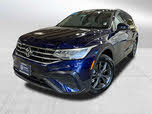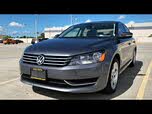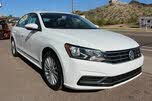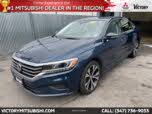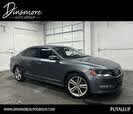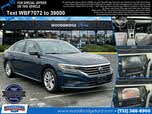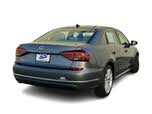Volkswagen Passat vs Volkswagen Tiguan
2023 Volkswagen Tiguan for Sale
Shop Now2022 Volkswagen Passat for Sale
Shop NowOverview | |
MSRP$27,575 | MSRP$26,950 |
Average price$13,393 | Average price$20,342 |
Listings3797 | Listings9428 |
Ratings & Reviews | |
User Reviews | User Reviews |
Expert reviews6.0 out of 10 | Expert reviews7.7 out of 10 |
Pros
| Pros
|
Reviews SummaryFirst came the Dasher in 1974, then the Quantum in 1982, then the Passat in 1990. None became household names like the Honda Accord or Toyota Camry, partly because the Passat and its progenitors appealed to a small contingent of Americans seeking European design, engineering, and driving dynamics in a car often characterized as a bargain-priced Audi. But in the midsize sedan segment, a reputation for reliability and efficiency, not design or handling, is king. Tired of compromise, Volkswagen "Americanized" the Passat for the 2011 model year, moving production to a new factory in Chattanooga, Tennessee. The car's blandly attractive design, huge interior, big trunk, and soft ride seemed to be just what U.S. customers wanted, along with a ”Made in the USA” label. But those potential buyers had moved on to SUVs, and the new Passat alienated some of the VW faithful. The Dieselgate scandal didn't help the Passat, either. VW nailed the car's coffin shut when the family car segment began to wither rapidly. So now, the Passat departs the U.S. market, effectively replaced by the Tiguan and Atlas SUVs and leaving the Jetta to serve people who still want a sedan wearing a VW logo on its grille. | |
Reviews SummaryThe Tiguan is larger inside than many of its rivals, and it is one of two vehicles in its segment to offer a third-row seat. In addition, the 2023 Volkswagen Tiguan is more upscale in appearance and enjoyable to drive than many of its primary competitors. However, the Tiguan is imperfect, and some people may decide its flaws are too significant to consider owning one. Especially people who are easily frustrated by technology. | |
No video found | No video found |
Popular Features & Specs | |
Engine2.0L 174 hp I4 | Engine2.0L 184 hp I4 |
Drive TrainFWD | Drive TrainFWD |
Seating Capacity5 | Seating Capacity7 |
Horsepower174 hp @ 5200 rpm | Horsepower184 hp @ 6000 rpm |
MPG City24 | MPG City24 |
MPG Highway36 | MPG Highway31 |
Engine | |
Engine Name2.0L 174 hp I4 | Engine Name2.0L 184 hp I4 |
Torque206 lb-ft @ 1700 rpm | Torque221 lb-ft @ 1900 rpm |
Horsepower174 hp @ 5200 rpm | Horsepower184 hp @ 6000 rpm |
DrivetrainFWD | DrivetrainFWD |
Fuel Economy | |
MPG City24 | MPG City24 |
MPG Highway36 | MPG Highway31 |
Interior | |
Seating Capacity5 | Seating Capacity7 |
Key Features | |
Sunroof/MoonroofStandard | Sunroof/Moonroof |
Safety | |
Front Crash Overall3 | Front Crash Overall4 |
Side Crash Overall5 | Side Crash Overall5 |
Dimensions & Capacity | |
Cargo Space15.9 cu ft | Cargo Space12.0 cu ft |
Curb Weight3369 lbs | Curb Weight3765 lbs |
Height58.7 in | Height66.4 in |
Length193.6 in | Length186.1 in |
Width72.6 in | Width72.4 in |
Wheelbase110.4 in | Wheelbase109.9 in |
Maximum Payload937 lbs | Maximum Payload1157 lbs |
Number of doors4 | Number of doors4 |
Maximum Towing Capacity | Maximum Towing Capacity1500 lbs |
2023 Volkswagen Tiguan for Sale
Shop Now2022 Volkswagen Passat for Sale
Shop NowOverview | ||
MSRP | $27,575 | $26,950 |
Average price | $13,393 | $20,342 |
Listings | ||
Ratings & Reviews | ||
User reviews | 4.4 | 4.5 |
Expert reviews | 6.0 out of 10Read full review | 7.7 out of 10Read full review |
Pros & cons | Pros
| Pros
|
Summary | First came the Dasher in 1974, then the Quantum in 1982, then the Passat in 1990. None became household names like the Honda Accord or Toyota Camry, partly because the Passat and its progenitors appealed to a small contingent of Americans seeking European design, engineering, and driving dynamics in a car often characterized as a bargain-priced Audi. But in the midsize sedan segment, a reputation for reliability and efficiency, not design or handling, is king. Tired of compromise, Volkswagen "Americanized" the Passat for the 2011 model year, moving production to a new factory in Chattanooga, Tennessee. The car's blandly attractive design, huge interior, big trunk, and soft ride seemed to be just what U.S. customers wanted, along with a ”Made in the USA” label. But those potential buyers had moved on to SUVs, and the new Passat alienated some of the VW faithful. The Dieselgate scandal didn't help the Passat, either. VW nailed the car's coffin shut when the family car segment began to wither rapidly. So now, the Passat departs the U.S. market, effectively replaced by the Tiguan and Atlas SUVs and leaving the Jetta to serve people who still want a sedan wearing a VW logo on its grille. | The Tiguan is larger inside than many of its rivals, and it is one of two vehicles in its segment to offer a third-row seat. In addition, the 2023 Volkswagen Tiguan is more upscale in appearance and enjoyable to drive than many of its primary competitors. However, the Tiguan is imperfect, and some people may decide its flaws are too significant to consider owning one. Especially people who are easily frustrated by technology. |
Video | No video found | No video found |
Popular Features & Specs | ||
Engine | 2.0L 174 hp I4 | 2.0L 184 hp I4 |
Drive Train | FWD | FWD |
Seating Capacity | 5 | 7 |
Horsepower | 174 hp @ 5200 rpm | 184 hp @ 6000 rpm |
MPG City | 24 | 24 |
MPG Highway | 36 | 31 |
Engine | ||
Engine Name | 2.0L 174 hp I4 | 2.0L 184 hp I4 |
Torque | 206 lb-ft @ 1700 rpm | 221 lb-ft @ 1900 rpm |
Horsepower | 174 hp @ 5200 rpm | 184 hp @ 6000 rpm |
Drivetrain | FWD | FWD |
Fuel Economy | ||
MPG City | 24 | 24 |
MPG Highway | 36 | 31 |
Interior | ||
Seating Capacity | 5 | 7 |
Key Features | ||
Sunroof/Moonroof | Standard | |
Safety | ||
Front Crash Overall | 3 | 4 |
Side Crash Overall | 5 | 5 |
Dimensions & Capacity | ||
Cargo Space | 15.9 cu ft | 12.0 cu ft |
Curb Weight | 3369 lbs | 3765 lbs |
Height | 58.7 in | 66.4 in |
Length | 193.6 in | 186.1 in |
Width | 72.6 in | 72.4 in |
Wheelbase | 110.4 in | 109.9 in |
Maximum Payload | 937 lbs | 1157 lbs |
Number of doors | 4 | 4 |
Maximum Towing Capacity | 1500 lbs | |

By: CarGurus + AI
This car comparison has been created with using generative AI. It is based entirely on CarGurus expert review content, ratings and data, and leverages our extensive library of hands-on product tests to create thousands of unique comparisons to help shoppers choose the right car.
